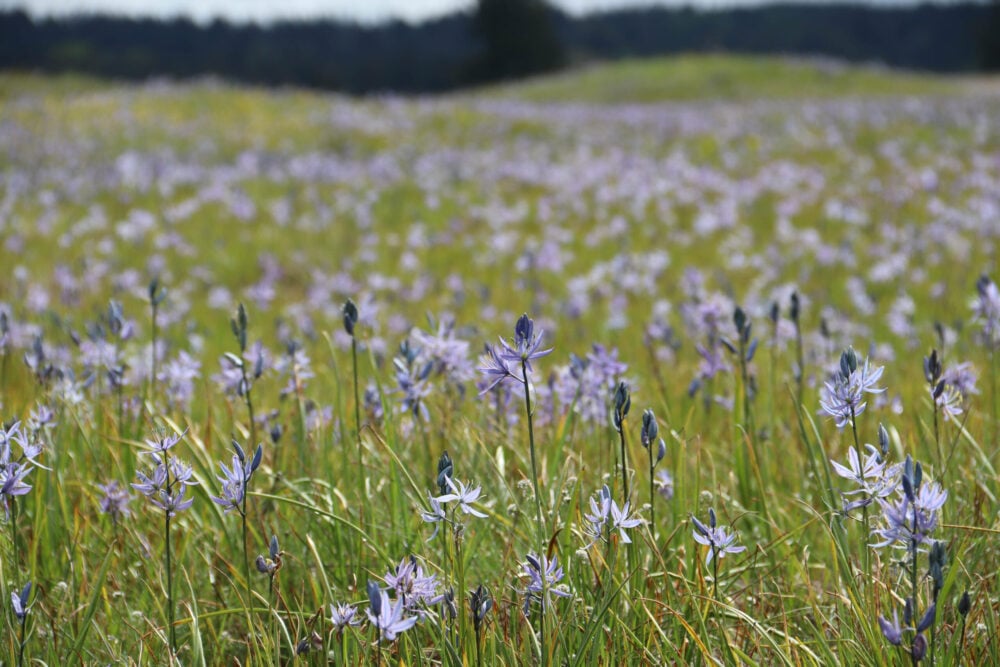
Contributor
- Topics: Archive
No other shrub is more symbolic of the Pacific Coast than manzanita (Arctostaphylos). From British Columbia to Baja, one species to many are endemic from the beaches to the mountains. Comprising more than fifty species and dozens of cultivars, they are one of the most distinctive shrubs of the far West, familiar to campers and hikers but little known in Pacific Northwest gardens—beyond the ubiquitous groundcover kinnikinnick (A. uva-ursi).
Paul Bonine has been growing a wide variety of shrubby manzanitas at Xera Plants, his wholesale nursery in Oregon’s Willamette Valley, and has been delighted to see them capture the imagination of Northwest gardeners. Once thought of as finicky in the region, it turns out that many including, those native to California, are ideally adapted to the Northwest’s naturally dry summers, and are surprisingly tolerant of winter cold as well. In California—where the majority of species are native, and where a multitude of cultivars are readily found in nurseries and at plant sales—they have long been recognized as valuable garden shrubs and have gained a staunch following among native plant enthusiasts. What they offer to gardeners in the Pacific Northwest is another component in the movement towards low-maintenance and low-water gardens. Handsome evergreen shrubs, they combine picturesque bark, showy flowers (early in the season), and food for wildlife; they are useful as both specimens and transitional shrubs to meld with neighboring wild areas.
In early December 2009, an intense cold front moved down the West Coast from Alaska, dropping temperatures into the low teens for many areas of the Pacific Northwest. At Xera Plants, the low recorded was 5° F. Paul has kept detailed records of the response to such cold spells observed in the plants growing in the ground at his nursery and in other nearby locations. He is happy to report that none of the manzanitas, in the ground, suffered any obvious damage from this latest cold spell. For more information on his evaluations of the cold hardiness of plants in the nursery’s garden, visit his website at www.xeraplants.com.
As a companion to Paul’s article, Arctostaphylos for Pacific Northwest Gardens, in the January 2010 issue of Pacific Horticulture, we offer the following list of sources for some of the manzanitas recommended in that article.
Nursery Sources
Each of the following nurseries usually offers several species or selections of manzanita (Arctostaphylos), including many that are not included in Paul Bonine’s article in the January 2010 issue of Pacific Horticulture. In addition to the nurseries listed, watch for plant sales at botanical gardens that have native plant collections and at local chapters of state native plant societies.
For more sources of manzanitas, mostly in California, click here .
Bay Natives (online only)
San Francisco, CA
www.baynatives.com
Online catalog, mail order
Cloud Mountain Farm
6906 Goodwin Road
Everson, WA 98247
360/966-5859
www.cloudmountainfarm.com
Online catalog, mail order, and walk-in
Colvos Creek Nursery
24029 59th Avenue SW
Vashon, WA 98070
206/749-9508 (mail order)
www.colvoscreeknursery.com
Online catalog, walk-in, and mail order
Dancing Oaks Nursery
17900 Priem Road
Monmouth, OR 97361
503/838-6058
www.dancingoaks.com
Online catalog and walk-in
Forestfarm
990 Tetherow Road
Williams, OR 97544
541/846-7269
www.forestfarm.com
Online catalog, mail order
Siskiyou Rare Plant Nursery
2115 Talent Avenue
Talent, OR 97540
541/535-7103
www.siskiyourareplantnursery.com
Online catalog, mail order, and walk-in
Xera Plants
Sherwood, OR
503/612-9950
www.xeraplants.com
Online catalog, wholesale only










Responses